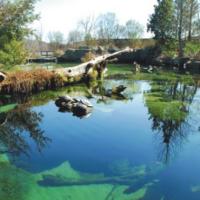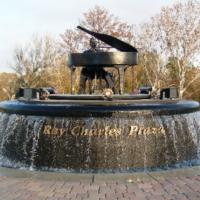 SKC Films Library SKC Films Library |
| SKC Films Library >> American History >> United States: Local History and Description >> South Atlantic States >> Georgia |
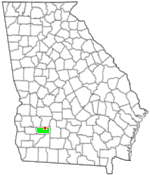 Albany AlbanyThe seat of Dougherty County, Albany is located on the Flint River. It has an area of approximately 56 square miles, and a population of about 77,000. Left: Aerial view of Albany.
The area where Albany is now located was formerly occupied by Creek Indians, who called it Thronateeska after the flint found near the river. In 1836, Connecticut businessman Nelson Tift (left) settled along the Flint River and established a settlement he called Albany, after the city of Albany, New York. The town was laid out by Alexander Shotwell, and the City of Albany was incorporated on December 27, 1838. Surrounded by prosperous cotton farms, Albany soon became a prime location for transportation of cotton by steamboats on the river, and later as a railroad hub. Economy In 1951, the Marine Corps established a large base on the eastern outskirts of the city. Today, the Marine Corps Logistics Base operates as a major depot center for the Corps. It is also a major employer for the area. Health care, education, manufacturing, transportation, and retail trade are other major contributors to the economy. Education Albany is served by the Dougherty County School System, as well as several private primary and secondary schools. The city is also home to Albany State University, Darton College, and Albany Technical College. Sites and Attractions The Albany Area Arts Council operates out of a renovated Carnegie Library. Other cultural attractions include the Albany Ballet Theater, the Albany Chorale, the Albany Concert Association, the Albany Museum of Art, the Albany Symphony Orchestra, and Theatre Albany. The Thronateeska Heritage Center, located at the old railroad station, has an impressive exhibit of trains and train memorabilia on display.
Several Albany buildings are listed on the National Register of Historic Places. Albany is home to the South Georgia Wildcats, an arena football team. Other Information Albany was featured in several chapters of W. E. B. Du Bois' The Souls of Black Folk (1903) as a typical African-American rural town in the South.
OFFICIAL WEBSITES |
| SKC Films Library >> American
History >> United States:
Local History and Description
>> South
Atlantic States >> Georgia This page was last updated on June 07, 2017. |
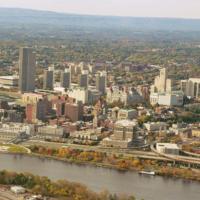
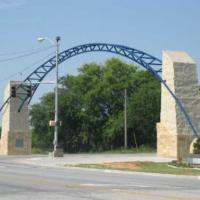
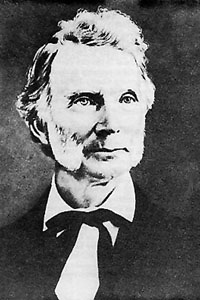 History
History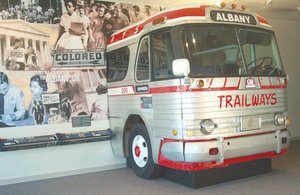 The Albany Civil Rights Movement Museum
commemorates Albany's role in the national Civil Rights
Movement -- on December 16, 1961, Martin Luther King,
Jr., and
The Albany Civil Rights Movement Museum
commemorates Albany's role in the national Civil Rights
Movement -- on December 16, 1961, Martin Luther King,
Jr., and 